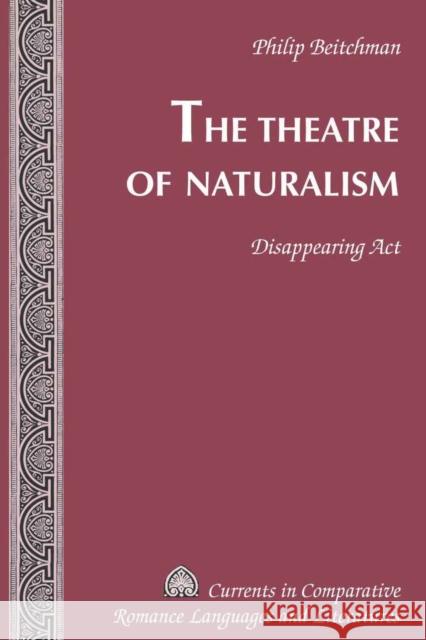The Theatre of Naturalism: Disappearing ACT » książka
The Theatre of Naturalism: Disappearing ACT
ISBN-13: 9781433112973 / Angielski / Twarda / 2010 / 139 str.
The impact of naturalism, a literary approach invented by Zola and especially significant in the field of the novel through his American -disciples- Crane, Norris, and Dreiser, is well acknowledged and recognized. Not so well recognized, but equally important, is naturalistic theatre; this was a style that also originated with Zola, but its progeny was more international and its significance more radical and insurrectionary than in the less -spectacular- genre of fiction. The Theatre of Naturalism: Disappearing Act establishes the incipiently revolutionary context (between the Paris Communist Commune, crushed in 1871, and the successful Bolshevik insurrection of October 1917) more or less foregrounded or in the background of works by Zola, Strindberg, Ibsen, Hauptmann, Synge, Shaw, and Tolstoy, focused especially on issues of class struggle and class war, as well as the prospects and possibilities of challenging the hegemony of the ruling orders. Especially in regard to later theatre, for instance the -hypernaturalism- of The Brig (Living Theatre) of Kenneth Brown, and of plays by Arnold Wesker and David Storey Philip Beitchman frequently invokes themes culled from recent French theory, particularly Derrida s deconstruction and Baudrillard s ideas about simulation. The Theatre of Naturalism will open up new perspectives for anyone interested in theory or theatre, whether scholars or the wider theatre-loving or performing public."











